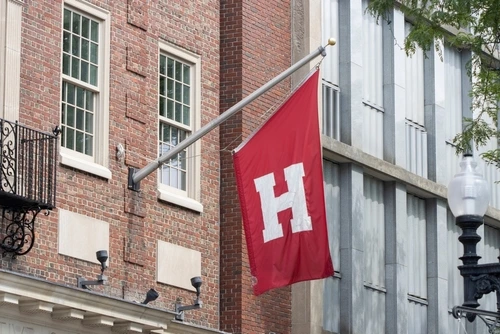
The Bloomberg Harvard City Leadership Initiative recently announced its seventh class of participants, comprising 40 mayors and 80 senior city leaders. The year-long programme offers executive education and management training to empower leaders in advancing their capabilities, fortifying city halls, and delivering tangible results for their respective communities, the institute said in a release.

The initiative, established by Bloomberg Philanthropies, Harvard Kennedy School and Harvard Business School, aims to bridge the gap in executive development within the public sector.
The mayors of Harvard
With cities facing ever-increasing global challenges, the Bloomberg Harvard City Leadership Initiative has been touted as a pivotal platform for nurturing the skills of mayors and senior city leaders. Equipped with a comprehensive set of tools and expertise, these leaders should be better equipped to address pressing issues and enhance outcomes for residents. The programme has garnered significant participation, welcoming its 275th mayor and more than 470 senior city leaders since its launch in 2017.
The initiative’s founder, Michael Bloomberg, expressed enthusiasm about the diverse and international make-up of this year’s class, emphasising the urgent challenges mayors face, including poverty, climate change and public safety. The programme aims to equip them with the capacity to “act boldly” and deliver impactful results to the millions of residents they serve.
As the flagship programme of the Bloomberg Center for Cities at Harvard University, the Bloomberg Harvard City Leadership Initiative brings together Harvard faculty, staff, and students, in addition to experts from Bloomberg Philanthropies’ global network. Collaboratively, they engage with mayors and senior officials over the course of a year, employing intensive classroom, virtual and field-based learning methods.
These immersive experiences foster data-driven problem-solving, intersectoral collaboration, and innovative solutions, ultimately driving positive change in communities. Moreover, cities can access executive education programmes for key areas such as economic development, civic engagement, human resources and procurement leads. Furthermore, the opportunity to host a Bloomberg Harvard City Hall Fellow for up to two years provides cities with valuable additional support.
Harvard University president Claudine Gay emphasised the initiative’s significance in cultivating connections and collaboration among leaders worldwide: “Along with the broader efforts of the Bloomberg Center for Cities, it exemplifies the convening power of the university and underscores our commitment to openness and collaboration now and in the future. ”
City leaders get with the programme
The programme commenced with a four-day immersive classroom experience in New York City for the 40 mayors hailing from nine countries and six continents. The participation of two senior leaders from each city will commence in August.
Highlights of the initiative’s seventh class of mayors include its representation from six continents, with the mayors hailing from Africa, Asia, Europe, Oceania, North America and South America. With representation from nine countries, including Brazil, Canada, South Africa, the US, Italy, Netherlands, New Zealand, Saudi Arabia and Switzerland, the class encompasses an international cohort. With 27 mayors from the US and 13 from international cities, the programme looks to foster cross-border learning and cooperation.
Notably, 40% of the mayors represent cities with populations between 200,000 and one million people, 45% from cities with less than 200,000, and 15% from cities with over one million people.
Members of this seventh class of mayors include prominent figures from different regions, such as Mayor Geordin Hill-Lewis from Cape Town Metropolitan Municipality, South Africa; Mayor Stefano Lo Russo from Turin, Italy; and Mayor Tory Whanau from Wellington, New Zealand, among others.
The initiative’s alumni includes Mayor Eric Adams of New York City, Mayor Keisha Lance Bottoms of Atlanta, and US Secretary of Transportation Pete Buttigieg, formerly the Mayor of South Bend, Indiana. These leaders have experienced significant personal and professional growth through the initiative, which has enabled them to implement effective solutions and positively impact their respective communities.
The initiative was expanded in April, introducing three new executive education programmes. These programmes aim to reach a broader spectrum of leaders, including those directing human resources, civic engagement, and economic development efforts from cities participating in the flagship programme. .
[Read more: How metro mayors are getting things done – even if they have limited money and power]






